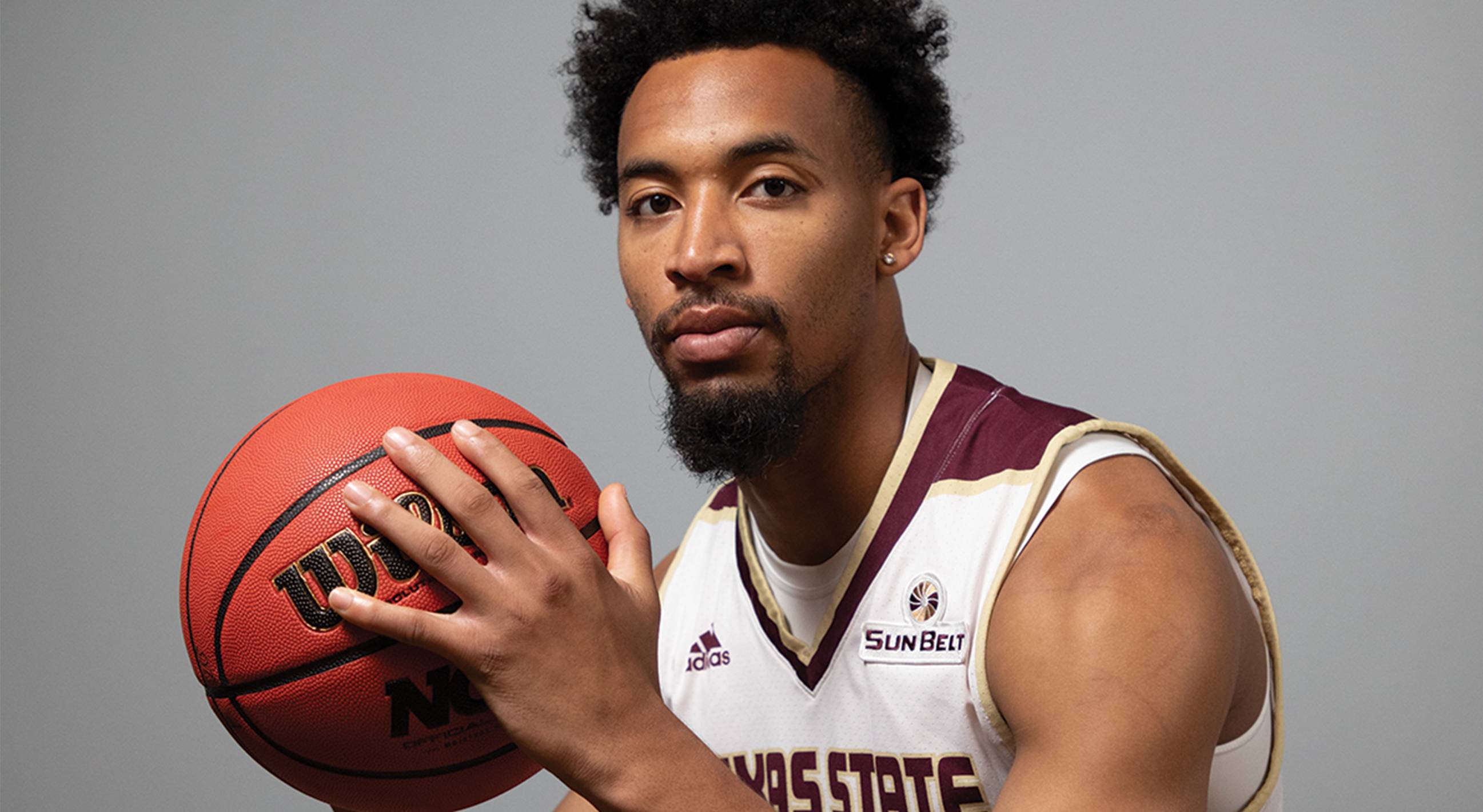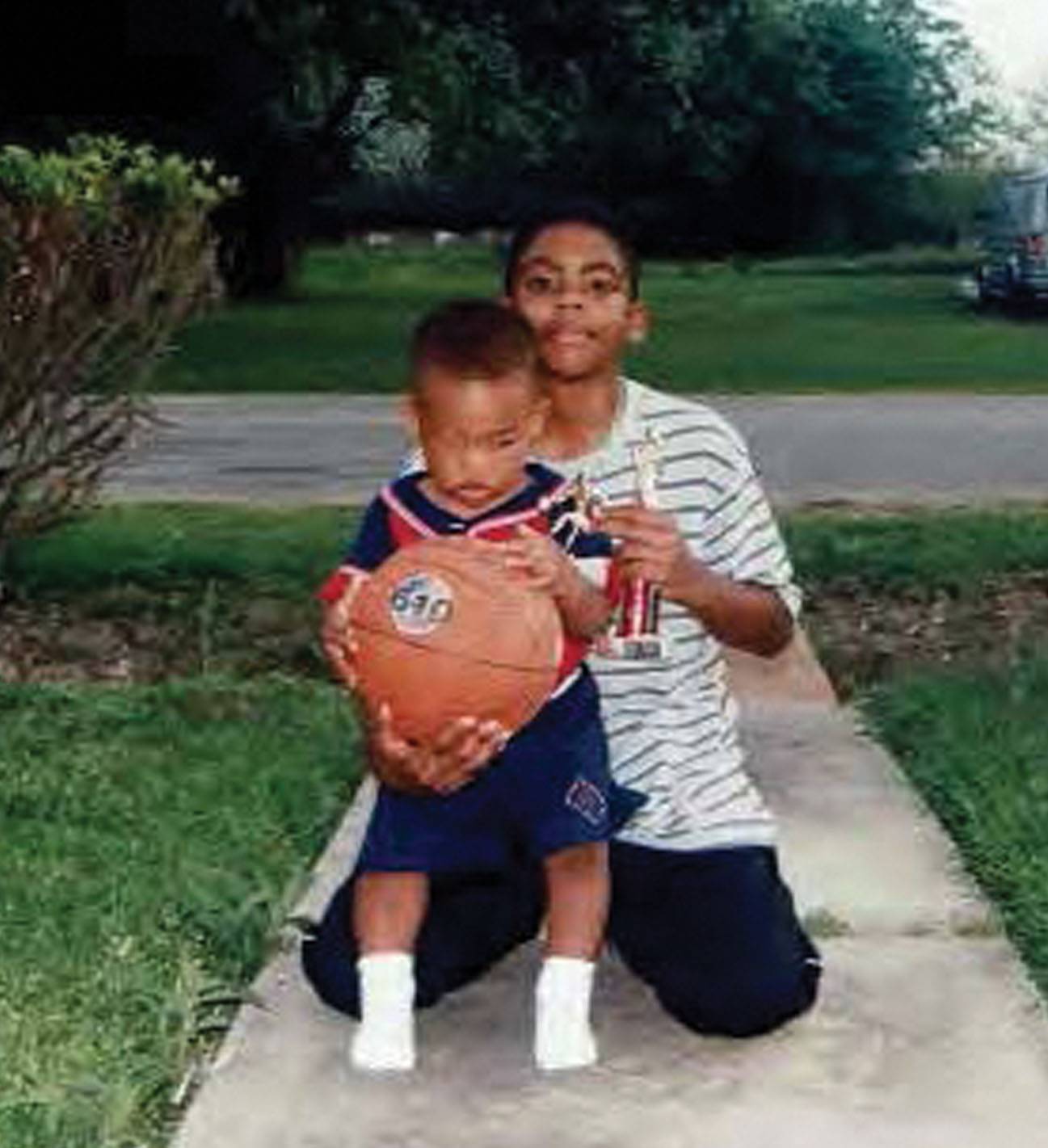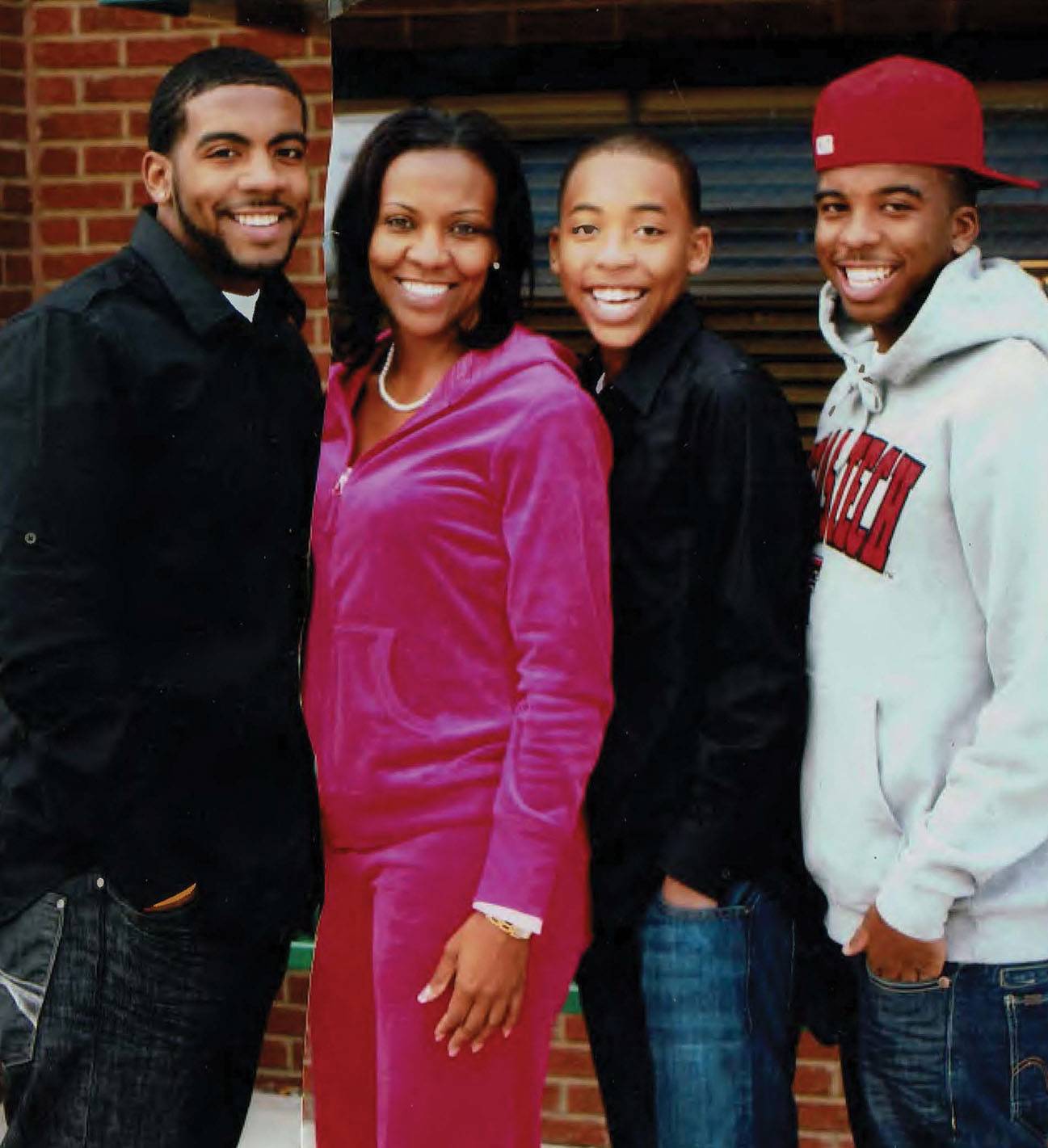
More Than Just a Number
By Mark Wangrin
Bobcat basketball player Nijal Pearson finds his purpose
You can’t miss it, really. On the right side of Nijal Pearson’s neck, inked in 3-inch block numerals, is the number 22.
This is the number the senior guard from Beaumont wears on his jersey for the Texas State men’s basketball team, so that tattoo choice might seem redundant at best; egocentric at worst. Look closer, though, and you’ll see a heart wedged between the numbers. It’s a broken heart.
Nijal got that tattoo in the spring, a week after the 6-foot-5 guard led the Bobcats to a 24-10 season and a tie for second place in the Sun Belt Conference. Pearson’s not big on tattoos, so he had to think about it for a long, long time. He wanted it to be special.
“I want you to see it,” Nijal says. “When you look at me, I want you to see the 22 — and the heartbreak.”
It’s the least you can do. After all, he lives with it every day. The 22 is not his. It belongs to his older brother, Nicholas. Nico, as he was known, wore 22 during his storied basketball career at West Brook High School.
Nine years ago this October, Stephanie Lartigue-Pearson, Nijal’s mother, woke him in the middle of the night to tell him Nico, then 21, had died. Lartigue-Pearson will never forget the blank look on 12-year-old Nijal’s face. He couldn’t understand that his father figure, role model, confessor, and teacher was gone.

‘My SONshines’
Nico was the oldest of the single mom’s three boys — “My SONshines,” Lartigue-Pearson calls them — five years older than Elijah and nine years older than Nijal. Elijah was different from Nico, but Nijal and Nico were alike. They talked, walked, moved, and thought alike.
Nico introduced 2-year-old Nijal to basketball, and that was it. Nijal (whose name is a combination of Nico and Elijah), adored his brother. “I wanted to do everything he did,” Nijal says. “Wherever Nico was, I was behind him stepping on the back of his shoes.”
As children, they were both preternaturally mature. Nico would pick up his 8-year-old brother from school, sit him on the couch, give him snacks and the TV remote, and go visit a friend around the corner. When Stephanie found out Nijal was home alone, she was upset. Nico assured her, “He’s not a baby.”
Nico said. Nijal did. Put God first. Be your brother’s keeper. School is important. Take care of your family.
Nico brought Nijal to play basketball with his friends, first telling him, “Don’t be doing that baby crying if you get fouled. You going to play with the big boys? Let’s play.”
Lartigue-Pearson remembers when a fan walked up to Nico after one of Nijal’s tournaments. “Man, your son is really good. You need to let him play for one of those teams in Houston,” she recalls him telling Nico. “Nijal always looked up to Nico as his dad and here someone thought he was his dad.”

Finding a purpose
In spring 2010, Nico was diagnosed with stage 4 testicular cancer. Nijal assumed that the brother he worshipped would beat it. Then he didn’t.
“Life was just up and done,” Nijal says softly. “I didn’t understand why. I didn’t understand what was next for me. To this day I still don’t understand. They say never question God, but I do it. I still want to know why. That’s part of life, I guess.
“I was fighting depression. What am I going to do with it? Am I going to let it make me mad? Is it going to be a reason for giving up or a reason to keep going? It was a time of life when things weren’t fun. I had to find a purpose.”
That purpose became honoring his brother. Nijal, who wore No. 3 as an homage to NBA star Dwyane Wade and because he was the third son of a mother he calls “Superwoman,” changed his uniform number to 22.
When he came to Texas State, 22 was available — but there was still more he could do. In November 2016, during his third game as a Bobcat, against Southern Illinois University in the Rainbow Classic tournament, Texas State held a comfortable lead in the closing minutes when he was fouled. Nijal stepped to the free-throw line and made his first shot. The referee handed him the ball for his second shot. He dribbled, focused on the basket, bent his knees, shot, . . . and missed.
On purpose. He came out of the game — with 22 points.
Twenty-two is not only something he wears on his back, neck, or box score. “It’s my alter ego,” Nijal says, and he goes on to explain. “See, Nijal is smart,” he says. “Sometimes Nijal holds 22 back, because Nijal understands stuff that goes on in the world. Sometimes Nijal says, ‘Man, I don’t know. You’re in college, playing Division I. You weren’t supposed to make it this far.’
“Twenty-two is cockier. He’s like, ‘You’re here. Do your thing. This is what you do. Everybody loves you for this.’ ”
Bobcats come calling
Bobcat fans have found much to love about Nijal Pearson. Not highly recruited, he picked Texas State because it came calling early. It was close to home, but not too close. Coach Danny Kaspar figured Nijal would contribute as a freshman, while he honed his shooting and polished the offensive skills to go with his hard-nosed rebounding. But a player transferred late and opened a spot in the lineup, and No. 22 has started every game he’s played.
“We bought an undervalued stock,” Kaspar says. “No one spends more time in the gym on his own … [He spends] more than any player I’ve ever had. He’s paid his dues.”
Now in his senior year, Nijal ranks second in three-point field goals made (175) and fifth in points (1,521) on the school’s all-time lists. A business management major, Nijal wants to top those lists and earn Sun Belt Most Valuable Player and then play professionally. He knows there are two things more important.
“I want to leave as a champion,” Nijal says. “I think I deserve it. I owe it to the fans.” Then there’s what he owes Nico. “I wish he was here to have a convo,” Nijal says. “I’d love to hear his critiques. I know he’d be proud of me.” ✪